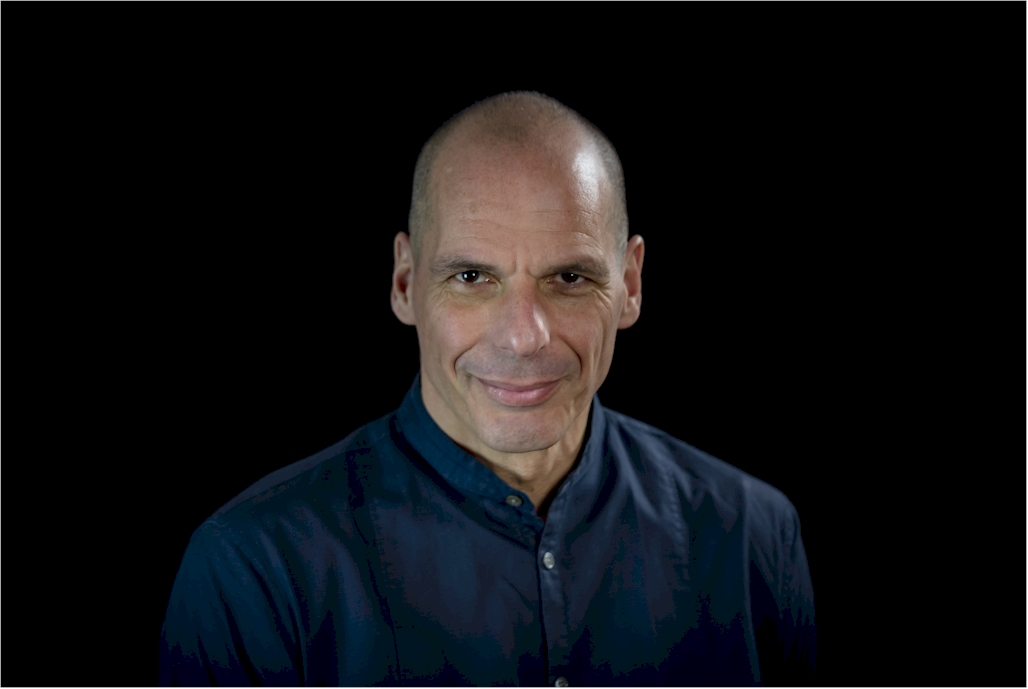European elections 2019: Six questions for Yanis Varoufakis
The economist and politician Yanis Varoufakis, as Greek finance minister in 2015, led the resistance against the austerity policy and the strategy of bank rescue of the European Union and the International Monetary Fund. He subsequently founded DiEM25 (the "Democracy in Europe" movement) and is now the leader of MeRA25, the political party of DiEM25 in Greece. For the European elections in 2019 he is the German top candidate of Democracy in Europe. Six questions for Yanis Varoufakis.

European elections: Varoufakis is the German top candidate of Democracy in Europe.
(Foto: DiEM25)
Mr.Varoufakis, you are of course known to us in Germany as a former Greek Finance Minister. You will be running for Germany in the European elections in May. What is the idea behind this commitment?
The purpose of competing in Germany is simple: To signal to Europeans that there is no clash between North and South, Germans and Greeks. That Europe is desperately in need of a systematic solution to our common systemic crisis. And that this requires a transnational political approach, including German candidates seeking a mandate from Greek voters and vice versa.
You are facing the upcoming European elections as a German top candidate of „Democracy in Europe“ (DiEM25). What can citizens expect from you and your organization?
They can expect that, if they send us to the European Parliament, we shall put forward on their behalf realistic policies – that do not require any more taxes – for tackling effectively the crisis of low investment in good quality green jobs. They can also expect from us a new kind of politics which allows German citizens the opportunity to feel again part of a paneuropean project that is in the interests of a majority of people in every country.
The immense problems that European citizens experience at first hand are not readily addressed by European leaders, it seems. Unemployment rates in Greece, Spain and Italy, for example, are still very high and there is also considerable youth unemployment. What should be done to improve people’s prospects?
The first thing we need to understand is that we are all in the same crisis. The reason for high youth unemployment in the South is the same as the reason for zero interest rates (destroying the pension funds of German families) in the North. We need to address the root of these common problems. Demokratie in Europa is proposing a smart paneuropean investment program that will deal with high unemployment in the South and low interest rates in the North simultaneously, without any new taxes or new institutions and under the existing rules. We call it a New Deal for Europe and we are proud of its technical sophistication.
The financial crisis is also far from over. From your point of view, which solutions make sense in the long term?
The financial sector has become too powerful and too destabilising because EU politics allows a constant shift of power from the social economy to the financial sector. To reverse this process we need two things: First, to channel idle savings from the financial sector to the production of green energy/transport/agriculture. Secondly, to break down the intimate relationship between our states‘ debts and the banks‘ speculative practices.
What further blockades are there to make Europe fit for the future and worth living for all citizens?
The dearth of democracy. Democracy is not a luxury. It is the only way citizens can control their lives, their future. Today, we have democratic states with no power and an all-powerful EU bureaucracy that is a democracy-free zone. We need to democratise the EU while making it more competent.
What are your hopes and forecasts for this election?
Our hope is that citizens will recognise in the proposals of Demokratie in Europa an alternative both to the business-as-usual mentality of the establishment and to the eurosceptic xenophobia of the extreme right.
About Yanis Varoufakis
Before being elected to the Greek Parliament, Varoufakis spent three decades teaching economics at universities in Great Britain, Australia, the USA and Greece. He holds a Chair in Economic Theory at the University of Athens and is a Honorary Professor of Economics at the University of Sydney and a Honorary Professor of Law, Economics and Finance at the University of Turin. Varoufakis is also a visiting professor of economics at King’s College in London and a honorary doctor of the University of Sussex.
He has published the books „The Global Minotaur: America and the Future of the World Economy“ (2012), „Time for Change: How I Explain the Economy to My Daughter“ (2016), „The Euro-Paradox. How another monetary policy can reunite Europe“ (2016) and „The whole story: My confrontation with Europe’s establishment“ (2017).

